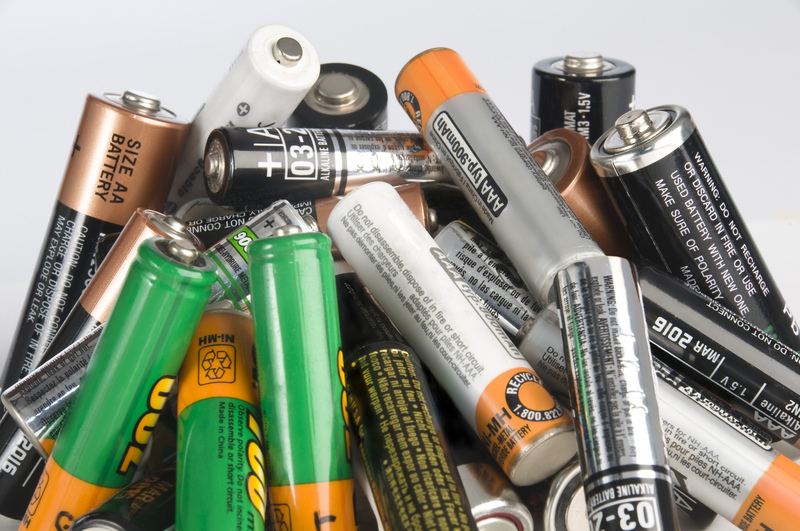Effective Waste Prevention Tips to Transform Your Home
If you've ever opened a cupboard to find expired food, or struggled with overflowing bins after a family gathering, you're not alone. Waste prevention at home is more than just recycling--it's about thoughtful choices, smart habits, and a commitment to sustainability. In this comprehensive guide, learn the most effective waste prevention tips to transform your home, reduce your environmental impact, and simplify your lifestyle.
Why Home Waste Prevention Matters
Across the globe, households generate millions of tons of waste each year. From food scraps to packaging, excessive waste contributes to pollution, resource depletion, and climate change. With a few mindful habits, you can significantly minimize your contribution--and even save money along the way.
Benefits of Waste Reduction
- Environmental Protection: Less waste means reduced landfill use and fewer greenhouse gas emissions.
- Cost Savings: Buying only what you need, and making the most of what you have, lowers household expenses.
- Improved Home Organization: Fewer unused items help keep your house clean and clutter-free.
- Health and Well-being: Minimizing waste encourages healthier lifestyle choices, such as home cooking and mindful shopping.

1. Smart Shopping: The First Step to Waste Prevention
Effective waste prevention at home begins before you even bring items into your house. Consider these essential tips for smart, sustainable shopping:
Make a Shopping List--and Stick to It
- Plan your weekly meals and write down only what you truly need.
- Avoid impulsive purchases of perishable items that may go unused.
- Check your pantry and fridge before shopping to prevent duplicates.
Choose Products with Minimal Packaging
- Opt for fresh produce, bulk bins, or items with recyclable or compostable packaging.
- Bring your own reusable bags, containers, and jars to reduce single-use plastics.
- Support local stores that prioritize sustainable packaging.
Buy in Bulk--But Only When Practical
- Bulk purchases can reduce unit packaging, but always ensure you have sufficient storage and will use the items before they spoil.
- Share bulk orders with friends or neighbors for less waste and savings.
2. Food Waste Prevention: A Game Changer
Globally, nearly one-third of all food produced is wasted. Embracing food waste prevention strategies is a powerful way to transform your home's waste profile.
Practice First-In, First-Out (FIFO)
- Store newly bought items behind older ones in your pantry and fridge.
- Eat what you already have before opening new packages.
Love Your Leftovers
- Plan meals that use up what's left in the fridge or pantry.
- Repurpose last night's dinner into soups, casseroles, or salads.
Understand Expiration Dates
- Many "best before" labels refer to quality, not safety. Learn what can be safely consumed past the date.
- Trust your senses before discarding food unnecessarily.
Compost Organic Waste
- Set up a compost bin or pile for fruit and vegetable scraps, coffee grounds, and eggshells.
- Composting transforms kitchen waste into nutrient-rich soil for gardens and houseplants.
3. Reuse and Upcycle: Give New Life to Old Items
Preventing waste isn't just about reduction--it also means reusing and upcycling whenever possible. This step can be fun, creative, and highly effective.
Creative Uses for Everyday Items
- Turn glass jars into storage containers, vases, or lanterns.
- Repurpose old t-shirts into cleaning rags or tote bags.
- Reimagine furniture with a fresh coat of paint or new hardware.
Donate or Sell Items
- Declutter by donating apparel, appliances, books, and toys that are in good condition.
- Consider selling valuable or unused items through online marketplaces or garage sales.
Repair Before You Replace
- Fix torn clothing, wobbly chairs, and gadgets with minor issues instead of discarding.
- Attend workshops or watch tutorials to learn basic repair skills.
4. Eco-Friendly Cleaning Practices
Many conventional cleaning products generate waste via plastic containers and non-recyclable packaging. Make your cleaning routine greener with these tips:
- Use Concentrated Cleaners: Dilute at home to minimize packaging waste.
- Switch to reusable cleaning cloths instead of disposable wipes and paper towels.
- Make homemade cleaners with common ingredients like vinegar, baking soda, and lemon juice.
5. Organize to Prevent Waste
A well-organized home is less likely to generate waste. Use these organization hacks to boost your waste prevention efforts:
Label and Arrange Food Storage
- Store food in clear containers with visible labels and expiry dates.
- Designate zones for snacks, grains, and canned goods for easier inventorying.
Streamline Your Wardrobe
- Sort clothes by season and frequency of use.
- Donate or repurpose pieces that no longer fit or suit your style.
Reduce Paper Clutter
- Go paperless with bills, subscriptions, and communications where possible.
- Recycle junk mail and unwanted papers immediately to avoid buildup.
6. Choose Durable, Sustainable Products
Long-lasting, quality items often outlast their cheaper counterparts, reducing replacement-related waste. Invest in durability and reparability whenever feasible.
- Buy appliances, tools, and furniture that are built to last and come with repair or replacement parts.
- Look for products made from recycled or biodegradable materials.
- Borrow or rent infrequently used items, like power tools or party supplies, instead of purchasing new.
7. Make Recycling a Last Resort--But Do It Right
While recycling is vital, the most effective waste prevention tips emphasize reduction and reuse first. When recycling, do so properly:
- Check your local guidelines for recyclable materials and sorting rules.
- Rinse containers to remove food residue before recycling.
- Do not wish-cycle--avoid placing non-recyclables in the recycling bin.
8. Engage and Educate Your Household
Waste prevention is most effective when everyone participates. Educate your family and roommates to foster a shared culture of sustainability.
- Hold regular discussions about new waste-prevention practices and track progress together.
- Assign specific responsibilities: kids can collect recyclables; adults can plan meals.
- Share what you learn--lead by example and inspire friends and neighbors.
9. Get Inspired: Waste-Free Challenges
Test your progress by taking on waste-free or low-waste challenges as a household. These activities are motivating and reveal areas for further improvement.
- Try a week of plastic-free shopping.
- Keep a waste diary to track what you discard and discover patterns.
- Join community events or online groups focused on waste prevention initiatives.

10. Keep Learning and Adapting
Waste prevention in your home is a journey, not a single solution. Stay updated on new products, practices, and community resources. Experiment, reflect, and adjust as your needs or family size changes.
Conclusion: Small Habits, Big Impact
Reducing waste at home doesn't require drastic measures; it's about consistent, mindful choices and adopting simple yet effective waste prevention tips that fit your lifestyle. Whether you're a seasoned zero-waster or just starting out, every action counts. By taking control of your purchases, consumption, and disposal, you'll enjoy a cleaner, greener, and more organized home--while making a lasting difference for the planet.
- Start small--pick one tip and build on your success.
- Celebrate progress, not perfection.
- Transform your home one sustainable step at a time.
Ready to make your home a waste-free zone? Use these effective tips for waste prevention to kickstart your journey today!